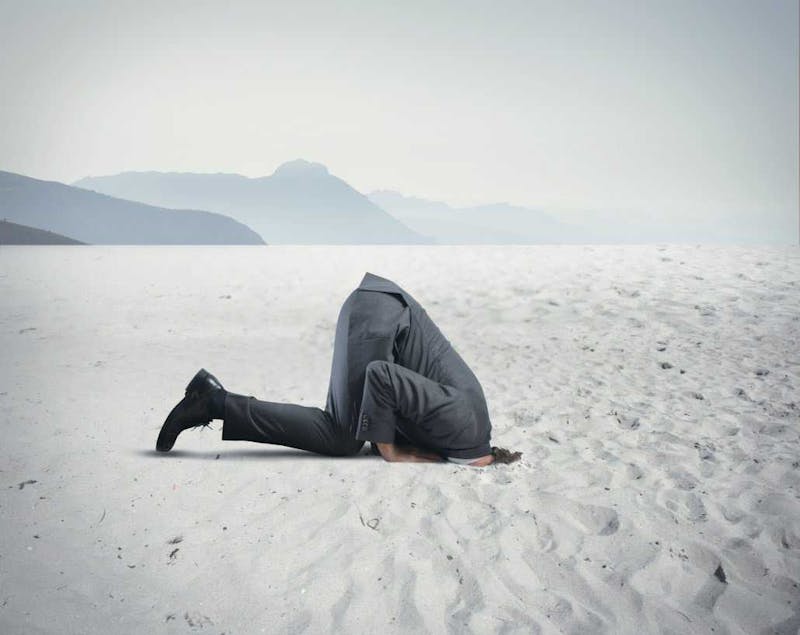D for Denial

Denial |dɪˈnʌɪ(ə)l|
Noun [ mass noun ]
Refusal to acknowledge an unacceptable truth or emotion or to admit it into consciousness, used as a defence mechanism: I was an addict in denial.
What is Denial?
Denial can be described as the inability to solve problems. Those with denial may find themselves pushing things to the back of their mind so that they don’t have to deal with them. It is both a form of protection and self-preservation and often the pain of incident causes or even forces us into denial. It protects us from the outcome that we know will hurt or disappoint us. You will find masking real feelings are very obvious and you may find yourself avoiding conflict with the ones you love or even with work colleagues.
When you are in denial
You avoid what is really taking place.
You don’t take facts into consideration.
You hide your true feelings.
You feel out of control or have a false sense of control.
You feel vulnerable.
Examples of denial
An addict refusing to believe that there is a problem.
Refusing to believe you have a drinking problem.
Parents ignoring problematic children and not seeking help.
Ignoring the fact that you have financial issues.
Pretending that you have no health issues.
Just like an addict can justify their actions and continue to engage in harmful or even life-threatening activities, the same goes for the eternal optimist, who only ever sees the positive without taking the negative into account – they deny reality. Like an Ostrich, burying your head in the sand becomes a comfortable place to live.
What does denial look like?
A person in denial loses touch with what is real and creates an imaginary dream world powered by avoidance.
They are highly skilled individuals in the art of manipulation.
Through this creation of their new world, they lose friends and loved ones because they are either too negative or too positive.
Becoming very dependent on others.
Needing constant reassurance and validation.
They justify their belief and value systems by finding negatives in others to verify they are “right”.
If we do anything over and over again you are sure to create a habit that becomes easier each time you do it. So for me,if you are in denial try and get out of the habit and see just how much better you feel. A paradigm shift in the way you think will not only make you a more positive person, but this positivity will radiate to the network you surround yourself with.
How to deal with denial
Time has taught me more about denial than I could have ever imagined possible. Over time I have learnt that some people tackle things head on and immediately and others surrender to problems and go into full-blown denial. They believe that it never happened at all. So in order to move beyond denial, you will need to:
Talk to trusted people who will have the patience and understanding towards you.
Having a safe place to express your emotions clearly.
Be honest with yourself.
Overcoming denial.
This may mean you becoming a bit more confrontational and confident in what you want and don’t want. Being self-assured and handling a situation with kindness will help you be straightforward with yourself and others. It is good to not always push things away pretending that they didn’t happen because they are sure to arise when you least expect them to. Also leaving things to build up may manifest into something else, is not a solution. Become more solution orientated will help you regain control of the situation that put you there in the first place.
Always find what is comfortable for you. You will find a way to handle what life throws at you in the best way suited to you. Learning coping mechanisms helps you get through tough times which will help you deal with life’s trials and tribulations.
One of your greatest life tools is coping with denial and the emotions associated with it.


